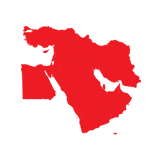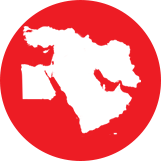“Our hospitals in Gaza are on the brink of darkness, and thousands of patients’ lives, including newborn babies in incubators, hang in the balance”
As fuel supplies in Gaza almost run out, hospitals are sounding the alarm with a last plea for fuel aid before they shut down their operations entirely.
Gaza’s Health Ministry is warning this morning that generators in two of northern Gaza’s main hospitals – the Al-Shifa Medical Complex and the Indonesian Hospital – are mere hours away from shutting down as fuel has nearly run out entirely. Critically, these hospitals are currently treating 42 newborns in incubators, 62 patients on mechanical ventilators, and 650 patients with kidney failure – alongside hundreds of other patients. Without fuel to power this vital healthcare, these people will die.
Gaza’s Health Minister also confirmed that the Turkish-Palestinian hospital, the only specialized hospital providing cancer treatment, has stopped functioning due to Israeli bombardment two days ago and is running out of fuel. This brings the total number of hospitals out of service due to bombardment and lack of fuel to 16 out of 35.
Riham Jafari, Communications and Advocacy Coordinator at ActionAid Palestine, said:
“Hospitals in Gaza are on the brink of darkness, and thousands of patients’ lives, including newborn babies in incubators, hang in the balance. Doctors are making one last plea for fuel aid, knowing that tonight could mark a critical turning point in their ability to provide life-saving care.”
Khitam, mother of a newborn baby, sheltering in Deir Al Balah, said:
“There is no water to drink. There is no clean water. We barely quench our thirst. And when I want to change the baby’s nappy, it’s the same. There are no nappies and no clothes. I [plead with] people from here and there for some clothes for the baby. There is no clean place to sleep. No, it’s a struggle when I want to find nappies, and I use one nappy for the whole day, to be able to economize.
My house was destroyed, and now we have been displaced to [a] school. I [also] have four [other] children who have been wanting to eat since the morning, but there is no bread. When bombing occurs near to your home, how do you help the children so that they do not hear the sound of missiles, or how do you maintain the safety of the children? To be honest, I personally cannot protect myself. I am as afraid as they are.”
Yesterday saw the devastating airstrikes on Jabalia refugee camp, which left at least 50 people dead and 150 more injured. With the densely populated camp leveled to the ground, it’s likely that many more are still buried under the rubble and that this number does not represent the total fatalities. We have been notified this morning that Israel struck the camp a second time, after distributing leaflets to civilians telling them to evacuate.
Riham continues:
“Many families are separating themselves across Gaza and staying in different places just to avoid all of them dying at once in a single airstrike. The levels of pain Gazans are enduring day after day is unimaginable.
We’re running out of words to describe the sheer brutality of what is happening in Gaza. Even for a crisis where countless potential violations of International Humanitarian Law are being committed daily, Israel’s attack on Jabalia is truly barbaric and another example of its use of collective punishment that has claimed the lives of 8,000 people.”
There is no public transportation in Gaza and hardly any fuel, meaning there is no way to evacuate south. Salah Al’Din road, the main highway between northern and southern Gaza, has been destroyed entirely in airstrikes, leaving hundreds of thousands of Gazans trapped.
Riham said:
“People in the north of Gaza have been ordered to evacuate to the south, but with roads heavily damaged by bombing and cars not able to move due to the lack of fuel, how are civilians supposed to make the journey south? If patients on dialysis machines and babies on incubators are moved from hospitals, they could die. Even if people could somehow travel south, the fact that this area has faced near-constant bombardment over the last three weeks proves that it is not a safe place to shelter. People in Gaza are trapped and face bombardment wherever they are.”
There must be an immediate ceasefire, now, to allow for humanitarian aid and medical supplies to reach the people in Gaza who so need it.
ENDS
For media requests, please email Christal.James@actionaid.org or call 704 665 9743.
The following spokespeople are available:
- Riham Jafari, Coordinator of Advocacy and Communication for ActionAid Palestine.
- Soraida Hussein-Sabbah, Gender and Advocacy Specialist for ActionAid Spain, based in Ramallah, occupied Palestinian territory.
About ActionAid
ActionAid is a global federation working with more than 15 million people living in more than 40 of the world’s poorest countries. We want to see a just, fair, and sustainable world in which everybody enjoys the right to a life of dignity and freedom from poverty and oppression. We work to achieve social justice and gender equality and to eradicate poverty.


